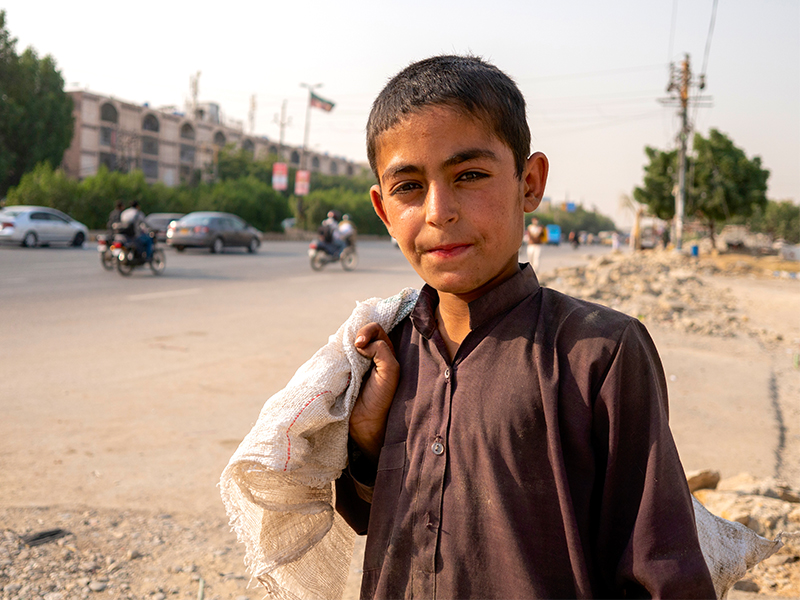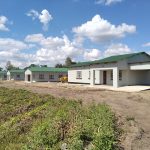Date
02/2020 – 07/2022
Country
Pakistan
Client
GIZ
Financing Institution
BMZ
Consortium Partner
IPSO GmbH
m4h Key Areas
Health Services
Overall project value
management4health GmbH along with its partner IPSO GmbH, supported the vulnerable refugees from Afghanistan and their host communities in Pakistan by providing them with gender sensitive and psychosocial support. The GIZ project, Social Support for vulnerable Afghan Refugees and host Communities (SSARC) was a comprehensive response to some of the most critical mental health issues and is grounded in an approach that sets human rights in the forefront.
The project ultimately targeted to develop resilience and adaptation skills in the refugee population and their hosts, enabling them to realise their full potential, show resilience amidst adversity, form meaningful relationships, and contribute to their communities by fostering social capital and solidarity, which are essential during times of crisis.
Project description
Pakistan is currently hosting over two million Afghan refugees, of whom 1.3 million were registered with the United Nations High Commissioner for Refugees (UNHCR).
The issues faced by the Afghan Refugees in Pakistan resemble the challenges that any refugee populations living in parts of a country that is already resource constrained and countering several other crises faces.
The areas of Khyber Pakhtunkhwa and Balochistan in Pakistan reflect such a setting wherein 68% of the refugee population lives outside of the designated refugee villages in urban and rural areas alongside their Pakistani hosts, putting additional pressure on the existing systems.
The objective of the project was to provide context-specific and gender-sensitive psychosocial support for them, with a special emphasis placed on women and young people in selected communities in Khyber Pakhtunkhwa.
The following were the four key indicators of the project:
- Improvement in the competencies of relevant (non-)state actors in dealing with the psychosocial needs of vulnerable population groups.
- Creation of safe spaces for the participants enabling them to seek and find meaningful assistance when coping with individual challenges in the context of flight and violence.
- Provision of context specific and gender sensitive activities of the vulnerable populations.
- Creation of a working plan that integrates the social needs of vulnerable young women and men in the context of flight and violence into the services offered by the Commissionerate for Afghan Refugees (CAR) in Peshawar.
Work Package
The consortium provided support in:
- Sensitising key ministries or their departments in the importance of psychosocial approaches and its share to foster social cohesion.
- Promote the increased provision of state services according to the psychosocial needs of the population of Khyber Pakhtunkhwa Province and Punjab Province as well as the Merged Areas.
- Provision of technical and strategic advice to define and align the psychosocial scope of the project towards the agreed objective.
- Provision of technical advice to project management and Commissionerate for Afghan Refugees (CAR) to integrate the needs of vulnerable groups (especially of the Afghan refugees) into an approach on the provincial level.
- Developing a Capacity Development Concept to strengthen the staff of CAR to move towards qualified attainable standards of psychosocial care and necessary resources.
- Provision of technical and strategic support to categorise and document the experiences of vulnerable youth made during the project implementation to develop an implementation plan to integrate the needs of vulnerable young women and men into CAR’s services.
- Provision of technical advice to elaborate a contribution of psychosocial needs for Afghan refugees into the Sustainable Development Strategy of the Government of Khyber Pakhtunkhwa.
- Development of a baseline (needs) analysis concerning psychosocial needs, strengths and weaknesses of the vulnerable Afghan refugees and members of the host communities including the community’s most serious protection risks.
- Provision of training concept for relevant actors and key persons to provide psychosocial support to vulnerable groups based on the results of the survey and prioritised intervention areas, demonstrating how to integrate local resources in the concept development and execution.
- Designing a supervision system (staff care), to offer options of reflection for the newly trained staff to exchange and discuss their experiences made in the interactions with the target groups (peer to peer approach).



